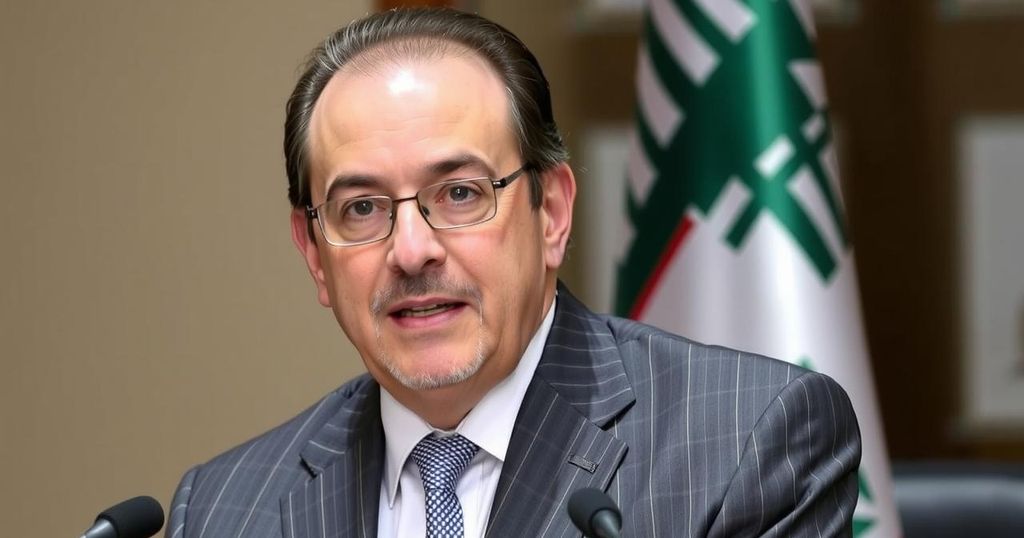Nawaf Salam has been appointed as Lebanon’s new prime minister by President Joseph Aoun after gaining support from a majority in parliament. His nomination poses a challenge to Hezbollah, which failed to reappoint the former caretaker prime minister. Salam, a seasoned legal expert and member of a prominent Sunni family, must now form a cabinet that can secure confidence in a deeply divided legislature amidst Lebanon’s continuing crises.
Nawaf Salam, currently serving as the president of the International Court of Justice (ICJ) based in The Hague, has been appointed as Lebanon’s new prime minister. This decision was reached following consultations between the newly elected President Joseph Aoun and two-thirds of the 128 members of parliament who endorsed the 71-year-old judge, in accordance with Lebanon’s sectarian power-sharing arrangement that allocates the prime minister’s position to a Sunni Muslim.
This recent nomination is perceived as a setback for Hezbollah, which had attempted to secure the continuation of Najib Mikati as prime minister. The Iran-backed political party, significantly weakened in the aftermath of its recent conflict with Israel, now finds itself with little influence and no candidate of its own. Senior Hezbollah legislator Mohammed Raad has expressed concerns, stating that their efforts to collaborate have been met with exclusion, indicating, “any government at odds with coexistence has no legitimacy whatsoever.”
Despite Hezbollah’s opposition, Salam received support from key Christian and Sunni politicians, including Gebran Bassil, who described him as the “face of reform,” and Faisal Karami, who emphasized Salam’s nomination as a response to the public demand for change and international backing for Lebanon’s recovery.
Hailing from a distinguished Sunni family in Beirut, Salam’s credentials are profound; he holds advanced degrees in political science, history, and law from prestigious institutions. His previous roles include representing Lebanon at the United Nations and serving as a member and later president of the ICJ.
With his appointment now official, Salam faces the critical responsibility of forming a cabinet that can obtain the necessary confidence vote in Lebanon’s fragmented parliament. President Aoun, who himself was elected with broad backing, aims to usher in a new era for Lebanon, emphasizing the importance of sovereignty and the need for significant political and economic reforms to address the ongoing crises, including a dire economic depression and the lingering effects of the 2020 Beirut port explosion.
The appointment of Nawaf Salam as Lebanon’s new prime minister occurs in the context of a fragile political landscape dominated by sectarian divisions. Lebanon’s power-sharing arrangement allocates key positions based on sectarian affiliations, impacting governance and stability. Recent conflicts, particularly the war with Israel, have diminished Hezbollah’s political capital, which complicates coalition-building efforts. Salam’s election as prime minister could potentially signify a shift towards reform as Lebanon grapples with profound economic and political challenges.
In conclusion, Nawaf Salam’s appointment as Lebanon’s prime minister marks a significant development in the country’s political landscape, highlighting the ongoing struggles between various factions and the push for reform in response to critical national issues. With Salam’s extensive background and support from diverse political players, there is potential for a new direction in Lebanon’s governance amidst a backdrop of instability and urgent reform. The challenge ahead involves garnering parliamentary support and addressing Lebanon’s profound economic and political crises.
Original Source: www.bbc.com






